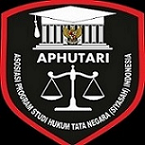Pola Kemitraan Bagi Hasil Plasma Antara PT. Sago Nauli Dengan KUD Hemat Di Kecamatan Sinunukan
Abstract
This article discusses the Sharia Economic Law Compilation (KHES) for the production sharing of oil palm plasma land in the village unit cooperative Sinunukan IV, Sinunukan District, Mandailing Natal District. This research is a field research with a qualitative approach, the primary data source comes from the Chairperson of the Cooperative Village Unit for Savings (KUD Hemat), the Management of KUD Hemat, and members of the plasma land owners. Then the secondary data from this research are books, journals, field documents and other sources related to this research. Data collection techniques by interviews, observation, and documentation and data analysis techniques using qualitative descriptive techniques. The results of this study explain that the implementation of profit sharing carried out by the Efficient Village Unit Cooperative (KUD Hemat) is to use a percentage system, namely 80% for community members as owners of oil palm plasma land, commonly referred to as SHP (Harvest Remaining). 20% for the PT, and cooperative management get 1.5% of the 20% given by the company, Muzara'ah and Mukhabarah in KHES are made in 1 CHAPTER namely in CHAPTER IX the first part of Article 255 regarding the pillars and regarding the conditions contained in article 256 -261. In KHES namely in CHAPTER IX the first part of Article 255 regarding pillars are: land owner, cultivator, cultivated land, and contract. In terms of pillars, it is appropriate both in terms of KHES (Compilation of Sharia Economic Law) and from Islamic law. However, in terms of the conditions it has not met, namely related to the land planted, that is, the land to be cultivated must be clearly known, so as not to cause disputes between the parties making the contract. This is what causes these conditions to be less than perfect because according to the observations it was found that the people who got the plasma land did not know the exact location. Based on KHES, in terms of profit sharing, it is in accordance with mukhabarah in the form of a percentage where it is appropriate (not gharar), namely in the form of 80% for community members as owners of oil palm plasma land, commonly referred to as SHP (Remaining
Harvest) every month. 20% for the PT, and cooperative management gets 1.5% of the 20% given by the company.
Keywords
Full Text:
PDFReferences
Referensi
a. Sumber Buku
Hasan, M. Ali. "Berbagai Macam Transaksi Dalam Islam", Jakarta: PT. Raja Grafindo Persada, 2003.
Jaziri, Abdurrahman Al. Fiqh Ala Madzahib Al-Arba'ah, Beirut: Dar al-Qalam, 1969.
Syafe’i, Rachmat. “Fiqh Muamalah”, Bandung: Pustaka Setia, 2001.
Ahmadi, Rulam. “Metodologi Penelitian Kualitatif”, Yogyakarta: Ar-Ruzz Media, 2014.
Fauzan, Saleh Al. “Fiqh Sehari-Hari”, Jakarta: Gema Insani Press, 2005.
Sahrani, Sohari. dan Ruf’ah Abdullah, “Fiqh Muamalah”, Bogor: Ghalia Indonesia, 2011.
b. Sumber Jurnal
Sainul, Ahmad. “Konsep Hak Milik Dalam Islam” Jurnal Al-Maqasid, Vol.6, No. 2, 2020.
Siregar, Fatahuddin Aziz. “Langkah-Langkah Mengetahui Maqasyid Syariah”Jurnal Al-Maqasid, Vol.4, No 1 2018.
Gunawan, Hendra. “Analisis Imam Ibnu Qudamah Tentang Kepemilikan Bahan Galian Tambang Kontinuitas”, Jurnal Yurisprudentia, Vol.7, No2 2021.
Harahap, Ikhwanuddin. "Pendekatan Al-Maslahah dalam Fatwa MUI Nomor 24 Tahun 2017 tentang Hukum dan Pedoman Bermuamalah Melalui Media Sosial", Jurnal Yurisprudentia, Vol.3, no 1, 2017..
Idris, Mhd. dan Desri Ari Enghariano, "Karakteristik Manusia Dalam Persfektif Al-Qur'an", Jurnal Al-Fawatih, Vol.1, No 1, 2020.
Mustafid, "Hukum Perbuatan Roasting dalam Stand Up Comedy Ditinjau Berdasarkan Ketentuan Syariat Islam", Jurnal Yurisprudentia, Vol.7, No 2, 2021.
Kurniawan, Puji. "Masyarakat dan Negara Menurut Al-Farabi", Jurnal El-Qanuny, Vol.4, No 1, 2018.
Siregar, Sawaluddin. “Praktik Jual Beli Getah Karet,” Jurnal El-Tawalib, Vol. 3, No 1, 2022.
DOI: https://doi.org/10.24952/el-thawalib.v3i6.6654
Refbacks
- There are currently no refbacks.









Editorial Office Board :
Kampus UIN Syekh Ali Hasan Ahmad Addary Padangsidimpuan
Jl. T Rizal Nurdin No.Km 4, RW.5, Sihitang, Padangsidimpuan Tenggara, Kota Padang Sidempuan, Sumatera Utara 22733
 Jurnal El-Thawalib is licensed under a Creative Commons Attribution-ShareAlike 4.0 International License.
Jurnal El-Thawalib is licensed under a Creative Commons Attribution-ShareAlike 4.0 International License.
View My Stats






